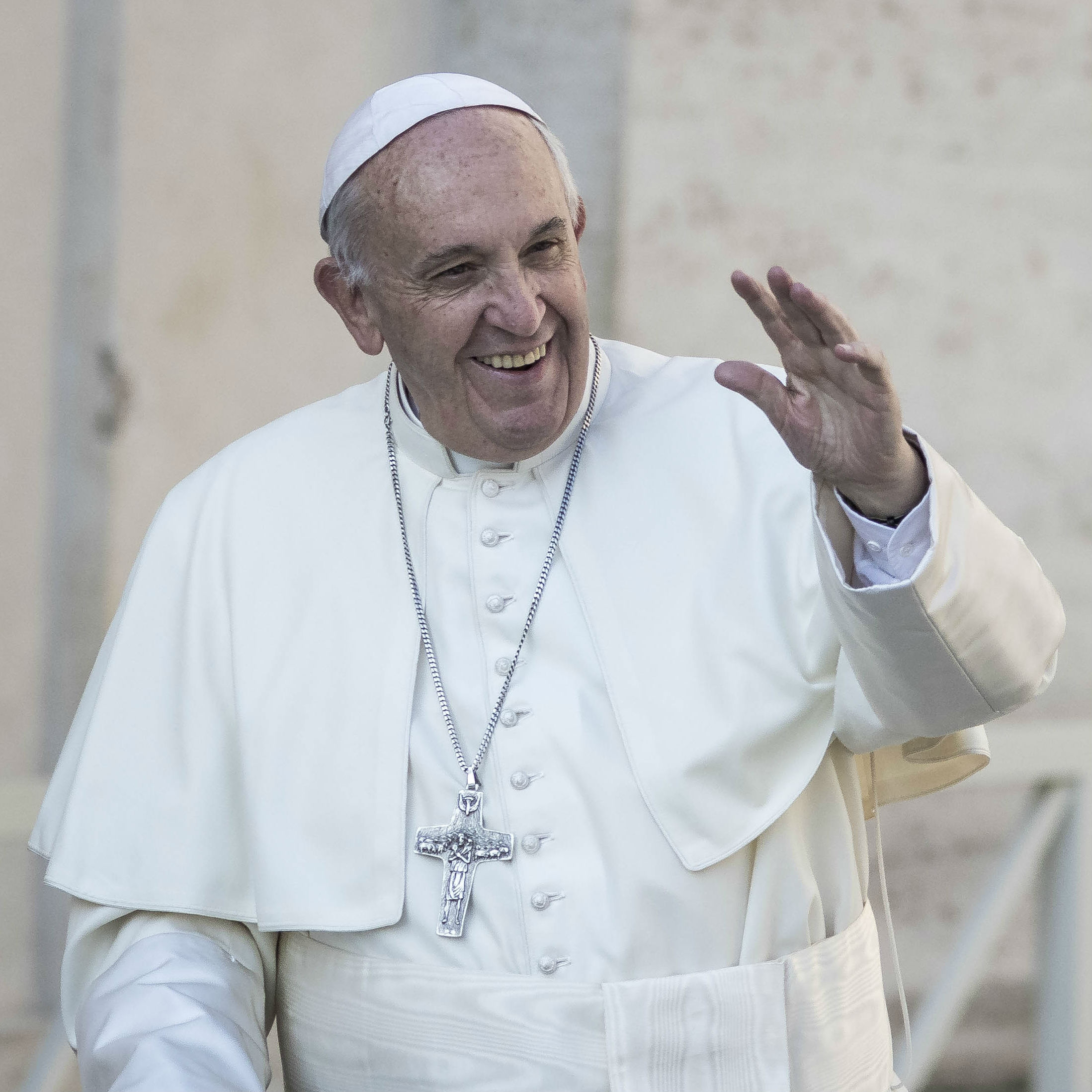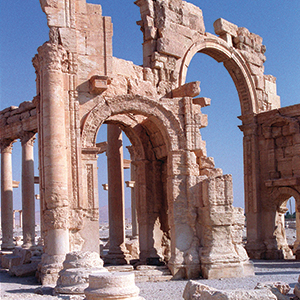Palmyra reclaimed
The Syrian army, backed by Russian warplanes, is reported to be continuing its offensive against Islamic State (IS) after recapturing the ancient city of Palmyra on Easter Sunday. The army says it will use Palmyra as a launch pad to expand operations against IS and cut its supply routes. It retook the city after days of fighting backed by Russian air strikes. John Pontifex from Aid to the Church in Need said: “The Syrian army’s apparent success in Palmyra could come to be seen as a symbolic or actual turning point in the struggle to overcome IS and other Islamic militants in Syria. Such steps towards victory over the forces of extremism provide much-needed hope for Christians who have much to fear from the perpetrators of a modem-day genocide against minority groups in the region.”
Archbishop Anthony Fisher of Sydney made his first public celebrations of the Mass during the Easter Triduum since he became ill with Guillain-Barré syndrome at Christmas. The 56-year-old Dominican, still clearly affected by the illness that initially left him paralysed from the neck down, said that “even now, after three months of care and rehabilitation, it is a great struggle for me to do the simplest things with my hands”. “As a priest and bishop, I miss the use of my hands even more because they are so important to our ministry as priests,” Archbishop Fisher said at the Chrism Mass in St Mary’s Cathedral on Holy Thursday. “At times I have wished that I had lost the function of my legs for much longer and had my hands back much sooner, but these things are in the hands of God and there is a providence there we know, and I have great confidence that God will bring great fruit from this time of powerlessness and vulnerability for me.” He spoke clearly but walked with difficulty and was assisted putting on his mitre. He could not fully extend his hands for the blessing.
Fr Vincent Machozi Karunzu, a priest from the Democratic Republic of Congo (DRC) murdered on 21 March by a group of armed men in North Kivu, had been challenging the illegal mining of coltan and other minerals in his region. Killed in the village of Vitungwe-Isale in Bunyuka Parish, Butembo-Beni diocese, he had frequently denounced the suffering of his Nande community caused by the presence of militias on their land. The armed groups colluded with the local army to illegally mine? and exploit? the minerals. Coltan is a vital component of mobile phones. The priest was born in 1965 in the former Zaire, now DRC. He was ordained a priest in Angers, in 1994 after completing his studies in France. He taught at the seminary in Kinshasa and earned a doctorate in conflict resolution at Boston University.
In the United States, Pope Francis named Archbishop Bernard Hebda (above) as the 11th Archbishop of St Paul & Minneapolis, Minnesota. The scandal-plagued archdiocese is in the midst of bankruptcy proceedings on account of pending clergy sex abuse settlements. Last June, Archbishop John Nienstedt resigned under pressure from the Vatican. Hebda has been the Coadjutor Archbishop of Newark, New Jersey, since 2013, and was expected to become archbishop there in July. He was appointed apostolic administrator of St Paul nine months ago. A civil and canon lawyer with a disarming personality, priests and people immediately warmed to him and began asking the Vatican to let him stay in St Paul.
Reflections on race
Small groups from different South African parishes will reflect on racism in the Year of Mercy, in the hope of building and developing relationships of equality and mutual respect, said the Southern African Catholic Bishops’ Conference (SACBC). “We encourage this open dialogue at the level of our parishes, availing parishioners of the opportunity to look at how people can grow in positive appreciation of cultural diversity and how this is expressed in the liturgy and other activities of the parish,” said Archbishop Stephen Brislin, president of SACBC. “We are committing ourselves to a comprehensive conversation on racism, acknowledging the presence of racism in the Church before and during the apartheid era and in these years of democracy,” he said.
Convert killed
Police are hunting for the killers of a Christian man hacked to death in northwestern Bangladesh on 22 March. The murder was the latest in a series of attacks on religious minorities in the Muslim-majority country. Three attackers rode up on motorbikes and repeatedly stabbed Hossain Ali, 68, while he was taking a regular morning walk in Kurigram district. They then fled after detonating two small homemade bombs as local people tried to help the victim. Ali and his family had converted from Islam to Christianity, joining the local Presbyterian church in 1999.
The town of Pugwash in Nova Scotia, Canada, has a population of 750 and six Christian churches. Holy Week and Easter Sunday was the occasion for a grand experiment spreading the gospel through Christian cooperation. All the churches, including the Catholic church, shared services and ceremonies throughout the week with different Ministers and priests taking part in different churches and venues marking Palm Sunday, Holy Thursday, Good Friday and Holy Saturday. The week concluded with an Easter sunrise service jointly celebrated by all six churches at the seaside. Rob Fennell of the Atlantic School of Theology told Canadian daily The Globe and Mail that the initiative in Pugwash “provides a reconnection with a kind of pristine understanding that there was once a greater unity within the Christian movement before we became enmeshed in political systems and power structures”.
Pope Emeritus Benedict believes that German Chancellor Angela Merkel (above) will manage the refugee crisis in Europe. “I would like to see peace in Germany and the refugee problem under control”, he told the German journal Bunte. He had been “stunned” to hear that Norbert Blüm, the former German minister for labour and social affairs had spent a night in the refugee camp at Idomeni on the Greek-Macedonian border to express his solidarity with the refugees there. “I was stunned that at the age of 80 Blüm had gone down to Greece and spent the night in a tent,” Benedict said. He recalled that the former Minister had been a student of his when he taught at Bonn University in the early 1960s.
.
Compiled by James Roberts
31 March 2016, The Tablet
News Briefing: global
 Loading ...
Loading ...
Get Instant Access
Subscribe to The Tablet for just £7.99
Subscribe today to take advantage of our introductory offers and enjoy 30 days' access for just £7.99



